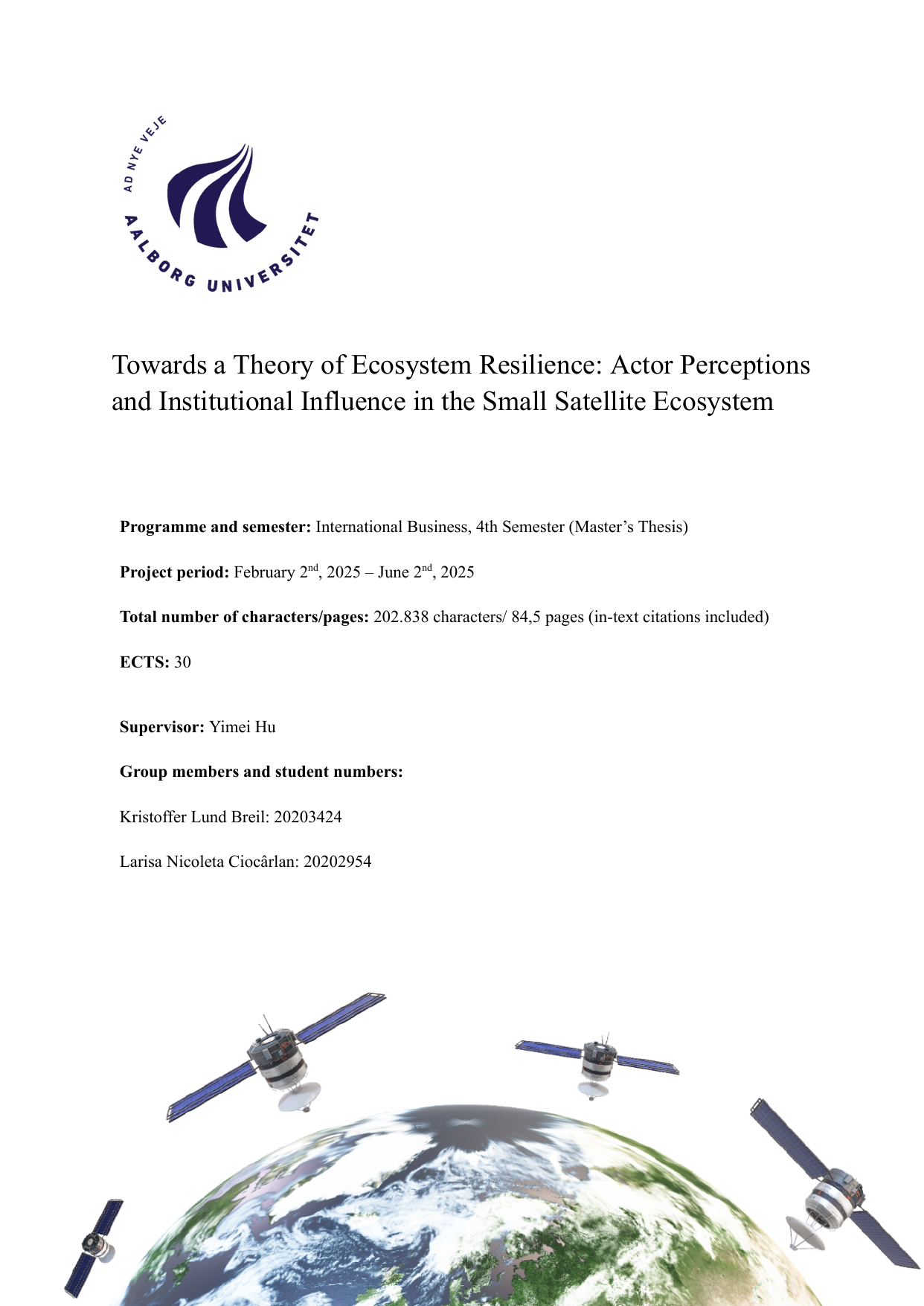
Towards a Theory of Ecosystem Resilience: Actor Perceptions and Institutional Influence in the Small Satellite Ecosystem
Term
4. Semester
Publication year
2025
Submitted on
2025-06-02
Pages
84
Abstract
In an era marked by geopolitical volatility, technological disruption, and mounting interdependence, the resilience of business ecosystems has become a critical concern, particularly in high-stakes settings such as the small satellite industry. While resilience is well-established at the firm level, little is known about how it emerges, is perceived, and is enacted at the ecosystem level. This thesis addresses that gap by investigating how ecosystem resilience is understood and operationalised by actors, primarily, within the European small satellite ecosystem. Employing a single embedded case study design, the study draws on twelve in-depth interviews across the small satellite ecosystem; spanning focal firms, suppliers, complementors, institutions and universities. The data is analysed using the Gioia methodology, enabling the identification of four aggregate dimensions: 1) subjective perceptions and practices of resilience, 2) interdependence and value co-creation, 3) institutional influence, and 4) vulnerabilities and adaptive strategies. The findings reveal that ecosystem resilience is a layered and negotiated process; emerging not from top-down coordination but from the decentralised, often unintentional alignment of individual strategies and institutional structures. Actors perceive resilience as both a mindset and a practice, shaped by financial constraints, geopolitical dynamics, and shifting customer expectations. Institutions, particularly space agencies and national funding bodies, play a pivotal role in this process by legitimising technologies, allocating resources, and shaping the technical and normative frameworks within which actors operate. Their influence extends beyond stabilisation – they actively participate in the renegotiation of ecosystem balance in response to shocks, value migration, and technological change. The thesis contributes to ecosystem and resilience theory by offering a conceptual framework that integrates structural, behavioural, and institutional dimensions of collective adaptability. Ultimately, the study suggests that resilience in complex ecosystems depends less on insulation from shocks than on the ability to navigate interdependence. In doing so, it equips practitioners and policymakers with new tools for understanding and enhancing the systemic robustness of innovation- and technology-intensive industries.
Keywords
Documents
